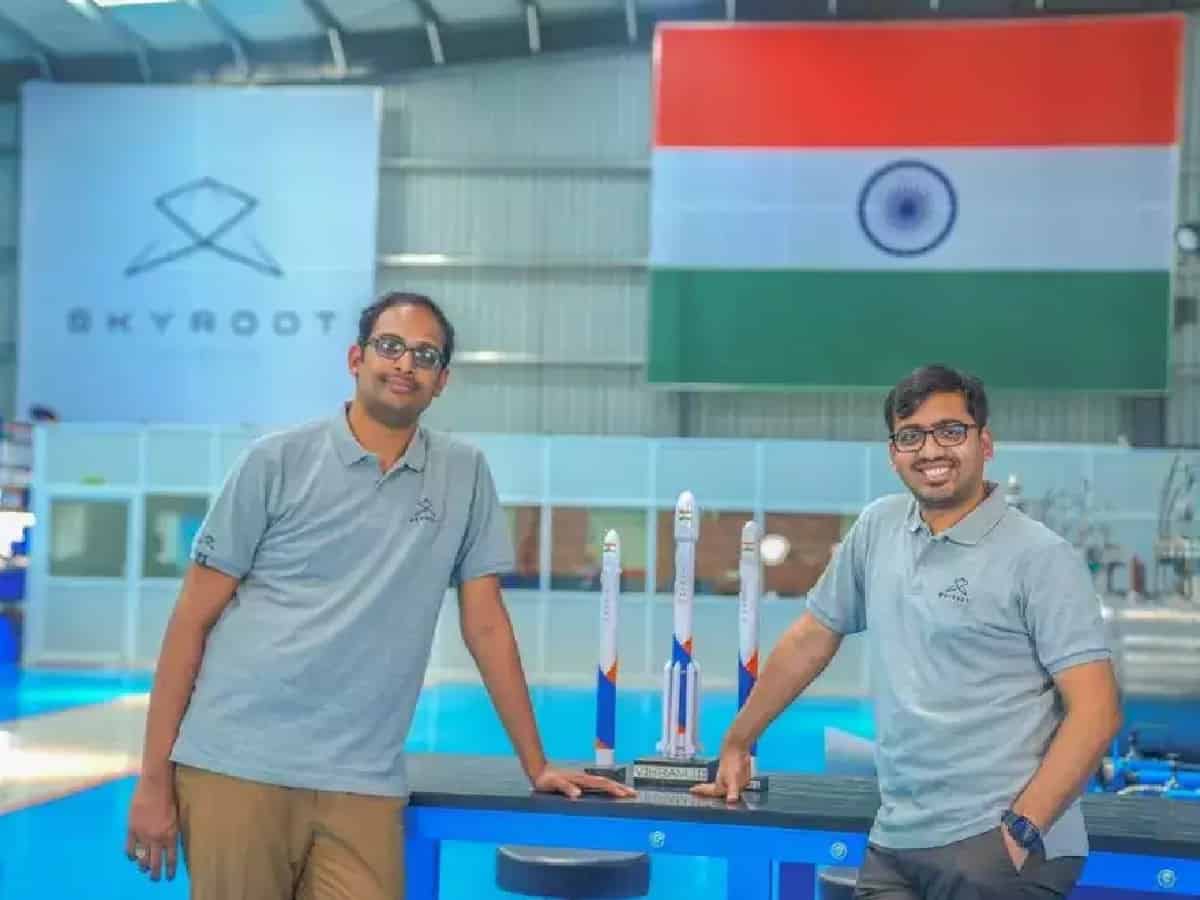
In what could be a first for the Indian private sector, Hyderabad-based, Skyroot Aerospace is all set to place into space small satellites with its own rocket named- Vikram-S between November 12 and 16.
Called ‘Prarambh’ or the beginning in Sanskrit, the maiden launch mission for Skyroot Aerospace got the official nod. The Chairman, Indian Space Research Organisation (ISRO), Dr S Somnath unveiled the mission patch in Bengaluru.
The mission got the clearance from IN-SPACe, the single window, nodal agency to promote and regulate space-tech companies and activities. The window of opportunity is November 12 to 16 and a final decision will be taken depending on weather conditions.
Interestingly, in the first mission to test the capabilities of private space startups carried out by the PSLV C 53 mission on June 30, 2022, a Hyderabad-based, Dhruva Space featured along with Bengaluru’s Digantara. The mission tested the space orbital deployer, a technology demonstration payload, developed by Dhruva.
Skyroot Aerospace is a venture by Pawan Kumar Chandana and Naga Bharat Daka, both well grounded from the ISRO. They started in 2018 and quickly caught the attention of Mukesh Bansal, founder of Myntra and Cure Fit. He not only liked the plans and focus of the ‘Start up’, but also immediately committed Rs 10 crore funding.
Rapid developments
The Vikram-S rocket getting ready for launch from the Satish Dhawan space port, SHAR in Sriharikota, Andhra Pradesh will attempt to carry three commercial payloads and help in validating several technologies.
The Vikram series of space rockets use solid fuel and cryogenic stages. They will have a capability to carry and place small satellites up to 500 kg and place them in the Low Earth Orbit.
Skyroot is the first private company to indigenously build the launch vehicle rockets which it named Vikram after Vikram Sarabhai, founder of India’s space programmes. It received a huge funding of $ 51 million or Rs 400 crore in September this year from the Singapore Investment firm, GIC to accelerate its developments towards commercial activity.
Skyroot has been making swift progress since it’s inception in 2018. It became the first startup to sign a MoU with the ISRO in 2021 to share facilities and expertise in space.
The Mission and Growth
The primary mission of Skyroot Aerospace is to design and build space launch vehicles. “We drew heavily on the presence of Engineering talent in the aerospace sector in Hyderabad, especially from the retired scientists of the ISRO & Defence Research and Development Organisation (DRDO). Quickly, we had a team of rocket engineers with a cumulative experience of 300+ years in the rocket industry,” says Pawan Chandana, CEO and Co-founder.
This strength quickly translated into developing the Vikram series of 3 launch vehicles in two years. Vikram-1 hosts an Orbit Adjustment Module (OAM) at the top which gives it the capability to place multiple satellites into space.
In a very short time, Skyroot also emerged as the first company to successfully test fire the upper stage Rocket engine named Raman (named after C V Raman, Nobel Laureate in Physics). This is critical in ensuring the operational capability of satellites that will be carried by Vikram launcher. It has expertise to develop both solid and liquid propulsion technologies.
The success is also key to validating the company’s 3D printed, propellant injector. In addition, it reduces the engine mass and components substantially.
Another achievement unveiled on the birth centenary of Prof Satish Dhawan, former Chairman of ISRO & Director of the IISc, Bangalore in September 2020 was the cryogenic engine named Dhawan-1. This engine was made entirely with 3D Printing, 100 percent cryogenic propellants-LNG/LoX, says Pawan proudly.
All these quick developments won Skyroot Aerospace the National Startup Award 2020 in the category of Space.
Skyroot Aerospace is banking on the competitive and cost differentials it can offer in carrying payload. At present the big launch vehicles charge about $20,000 per kg, ISRO offers a slightly lesser price for its PSLV. Space X is targeting to dramatically lower it to $5000 per kg with its mastery of reusable rockets in the near future.
Within the country the startup scene has also picked up with the government’s Space Policy that encourages private participation. It has also created the NSIL (National Space Industries Limited) and IN-SPACe to give a major push.
